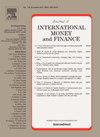Not all banking crises are alike: Assessing their distributional impacts relative to pre-crisis credit gaps
IF 2.8
2区 经济学
Q2 BUSINESS, FINANCE
引用次数: 0
Abstract
The empirical literature on the effects of banking crises on income inequality has yielded mixed findings. In this paper, we aim to reconcile these mixed results by evaluating the effects of banking crises on income inequality in relation to pre-crisis credit gaps. We apply the Local Projections methodology to a yearly panel of 68 banking crises that occurred in 59 countries over the period 1970–2017. Three key results emerge. First, banking crises lead to increased income inequality. Second, only those banking crises preceded by larger credit gaps show a significant increase in income inequality. Third, a deeper contraction in the credit supply and a higher unemployment rate are two channels that could potentially explain why inequality rises more after banking crises with larger pre-crisis credit gaps. These results underscore the importance of macroprudential policies that, as well as limiting the amplitude of the financial cycle and the associated risks of financial crises, could also play a key role in reducing the distributional consequences of banking crises.
并非所有的银行危机都是一样的:评估危机前信贷缺口对分配的影响
关于银行业危机对收入不平等影响的实证文献得出的结论喜忧参半。在本文中,我们通过评估银行危机对收入不平等的影响与危机前信贷缺口的关系,旨在调和这些混杂的结果。我们将本地预测方法应用于 1970-2017 年间 59 个国家发生的 68 次银行业危机的年度面板。得出了三个关键结果。首先,银行危机导致收入不平等加剧。其次,只有那些在发生银行危机之前信贷缺口较大的国家,收入不平等才会显著增加。第三,信贷供应的深度收缩和较高的失业率这两个渠道有可能解释为什么危机前信贷缺口较大的银行业危机后不平等现象加剧。这些结果凸显了宏观审慎政策的重要性,除了限制金融周期的幅度和金融危机的相关风险外,宏观审慎政策还可以在减少银行危机的分配后果方面发挥关键作用。
本文章由计算机程序翻译,如有差异,请以英文原文为准。
求助全文
约1分钟内获得全文
求助全文
来源期刊

Journal of International Money and Finance
BUSINESS, FINANCE-
CiteScore
4.20
自引率
4.00%
发文量
141
期刊介绍:
Since its launch in 1982, Journal of International Money and Finance has built up a solid reputation as a high quality scholarly journal devoted to theoretical and empirical research in the fields of international monetary economics, international finance, and the rapidly developing overlap area between the two. Researchers in these areas, and financial market professionals too, pay attention to the articles that the journal publishes. Authors published in the journal are in the forefront of scholarly research on exchange rate behaviour, foreign exchange options, international capital markets, international monetary and fiscal policy, international transmission and related questions.
 求助内容:
求助内容: 应助结果提醒方式:
应助结果提醒方式:


